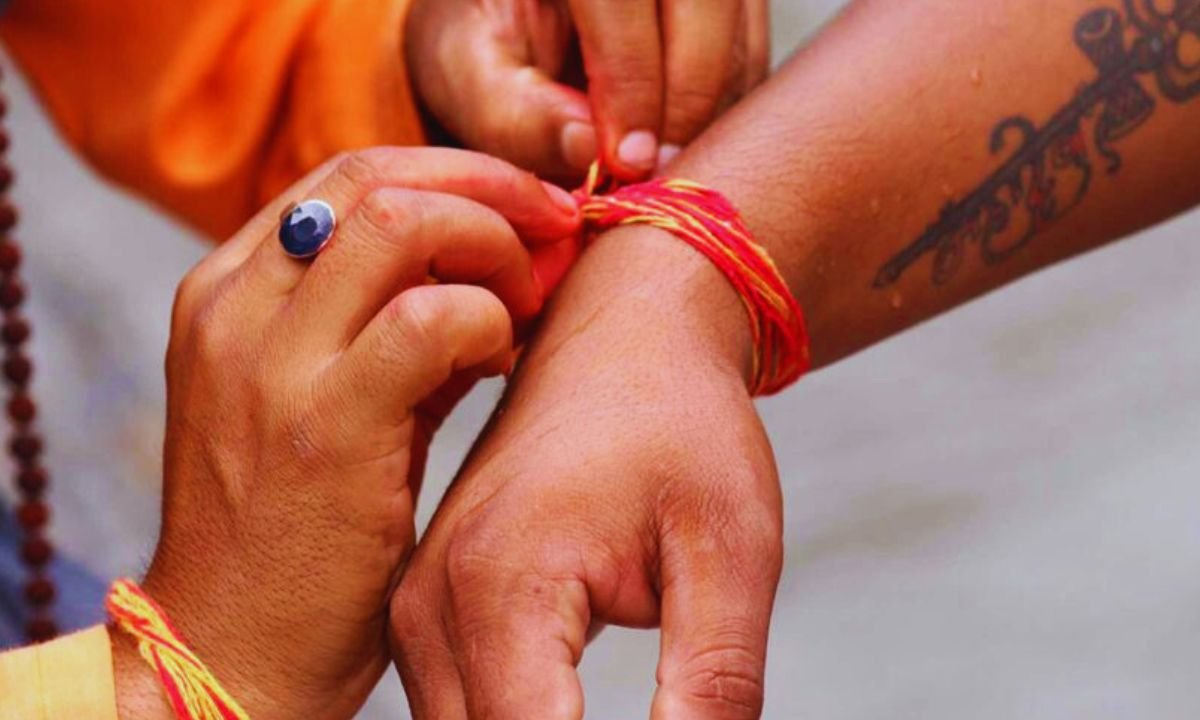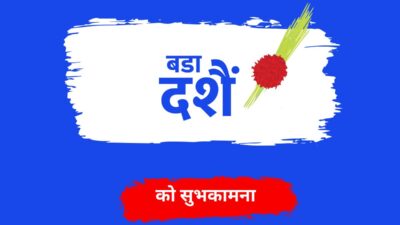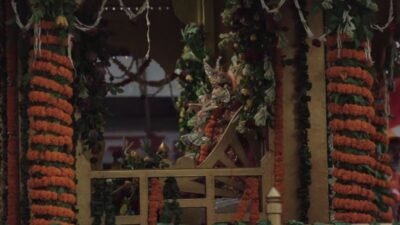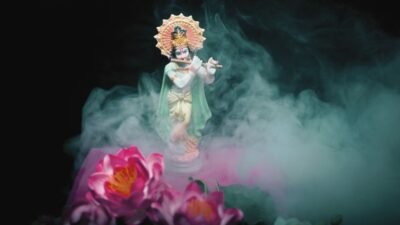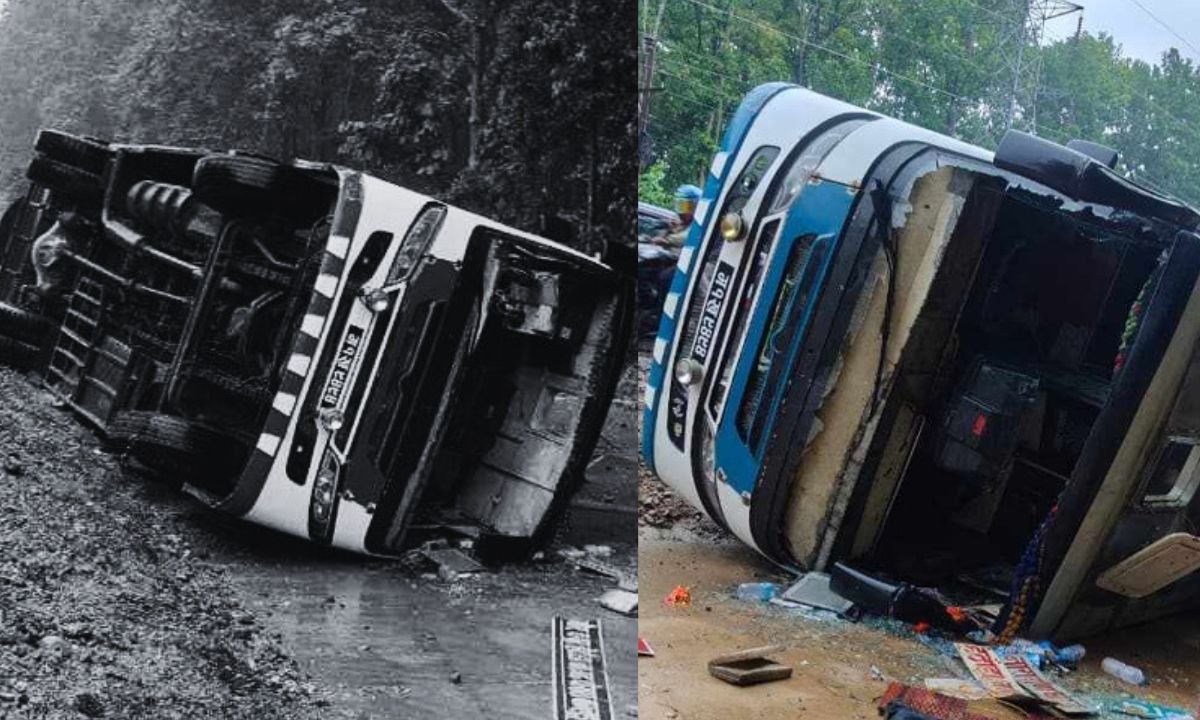- News
- National
- WorldExplore stories, events, and insights from across the globe. Stay updated on international affairs, cultural highlights, and impactful moments that connect us all in the world we share.
- COVIDAll the COVID updates you actually need — in one place. From rising cases and health alerts to vaccine news and government responses in Nepal, we track how the pandemic is evolving right now.
- OpinionTransform your living spaces with inspiration, tips, and trends in interior design. From minimalist decor to bold statements, find ideas for every style and budget.
- MausamWhat’s the vibe outside in Nepal? We got you. From surprise rain in Pokhara to record heat in the Terai, Mausam keeps you in the loop with real-time updates, sky moods, and climate chaos. Daily forecasts, weather memes, wild climate shifts—basically, everything the sky’s throwing at Nepal.
- Entertainment
- Tech X Innovation
- StartupsNew tech companies – Coverage on emerging businesses and cool new ideas. Funding rounds – Reports on who’s investing in which startup. Incubators/accelerators – Stories from Y Combinator, Techstars, and others. Founder interviews – Insightful chats with the people behind the tech. Focuses on early-stage innovation, entrepreneurship, and the business side of tech creation.
- Green TechSustainable innovations – Greener solutions in daily tech. Electric vehicles – From Tesla to two-wheelers. Solar & clean energy tech – Advances in renewable energy. Highlights environmentally friendly technology shaping the future.
- Social MediaNews on Facebook, Instagram, X (Twitter), TikTok, Snapchat, Threads, etc. – Platform-specific updates and controversies. Influencer trends – Who’s going viral, and why. Platform updates & features – Algorithm tweaks, UI changes, etc. Social media marketing tips – Strategies for brands and creators. A must-have category for Gen Z audiences and digital culture followers.
- Tech BusinessBig Tech (Apple, Google, Meta, etc.) – Corporate strategies and leadership. Mergers & acquisitions – Who’s buying whom. Market trends – Stocks, earnings, and business moves. Tech stocks & IPOs – Valuation and investment angles. Takes a business lens on tech developments and industry movements.
- AI & InnovationChatGPT, Google Gemini, etc. – Deep dives into trending AI tools. AI tools for creators – Helping writers, artists, and editors. Robotics & automation – Cool robots and smart factories. Research & futuristic tech – Sci-fi-level innovation becoming reality. Where bleeding-edge meets practical utility — future tech made now.
- Apps & SoftwareApp launches and reviews – First looks, ratings, and real-world testing. Productivity tools – Apps that boost work and personal efficiency. Social media tools – Analytics, schedulers, and growth platforms. Updates to existing platforms – Major feature changes or UI overhauls. Covers the ever-growing world of applications that power our daily digital lives.
- Gadgets & DevicesSmartphones, laptops, wearables – Launches, leaks, and hands-on reviews. Reviews & comparisons – Which device is best, and why? Launch events (Apple, Samsung, etc.) – Coverage of major tech product events. Focuses on the hardware and tools that define the modern tech lifestyle.
- Better Living
- HealthStay informed about health and wellness with expert advice, fitness tips, and the latest medical breakthroughs. Your guide to a healthier and happier life.
- LifestyleExplore stories and advice on living your best life. From personal growth to entertainment, dive into the latest in lifestyle trends and inspiration.
- FoodySavor the world of culinary delights with news, recipes, and food trends. From gourmet dishes to comfort food, indulge in the flavors that bring people together.
- Sports
- Gaming
- TransfersWho’s in, who’s out, and who’s about to shake up the football world? 🚨 From wild rumors to official deals, we track every move that matters. Whether it’s a superstar switch or a lowkey wonderkid transfer, Kirib’s got the tea. ✅ Confirmed Transfers – Official club announcements with fee details and contract length. 🔁 Rumors & Talks – Trusted reports on who’s linked with who, and how real the deal is. 🌍 Global Coverage – Premier League, La Liga, Serie A, Bundesliga, and beyond. 🧠 Breakdowns – Why the move matters, how the player fits, and what fans are saying. 🎯 Wonderkid Watch – The next-gen ballers on the move and why you should care. ⏱️ Deadline Day Drama – Live updates, chaos, and last-minute deals you don’t want to miss. 💸 Transfer Fees & Wages – The numbers behind the moves—no fluff, just facts. 🎥 Player Highlights – Quick clips and stats to see what the hype’s about.
- CricketFrom local legends to global icons — this is your home for everything cricket. Whether it’s Nepal chasing history or world giants battling in packed stadiums, we bring fast, focused, and fresh coverage. Stay tuned for: Nepal men’s and women’s national team updates Live scores, match previews & sharp predictions Nepal Premier League (NPL) & domestic tournaments ICC events, World Cups, and qualifiers Player spotlights, rising stars, and milestones Exclusive news, quick stats, and squad insights Catch every boundary, wicket, and headline — only on Kirib.
- Football
- Other Sports
- Premier LeagueThe most-watched league on the planet — now with a Kirib spin 🌍⚡From Old Trafford to Anfield, we bring the Premier League closer to Nepal What you’ll get here: • 🗓️ Weekly fixtures & match schedules (Nepal Time)• 🧢 Previews, predictions & bold takes• 📊 Results, standings & what they mean• 🚨 Transfer buzz, injury updates & drama• 🔥 Fan culture, memes & top moments• 📺 Storylines that matter — on and off the pitch
- World Cup 2026Football’s biggest stage, covered in Kirib style. Fast previews, bold predictions, squad news, stats that slap, and viral moments — all in Nepal Time. What’s Inside: Fixtures & results Match previews & hot takes Squad updates & injuries Meme-worthy moments Knockout drama Nepali POV on the global game
- Champions LeagueEurope’s biggest stage. Global hype. Local timing.We cover the UEFA Champions League with speed, style, and a Nepali lens What you’ll find here: • 🗓️ Fixtures & full schedules (📍Nepal Time)• ⚔️ Match previews & key battles• 📊 Results & post-match breakdowns• 🔥 Player watch & breakout stars• 🧠 Tactical insights, memes & culture takes• 🏆 Road to the Final — every twist, every turn
- Nepal Premier LeagueAll the latest news, match previews, results, player updates, and behind-the-scenes coverage from the Nepal Premier League (NPL), Nepal’s top domestic T20 cricket tournament. Lineups, auction details, schedules, and standout performances throughout the season.
- Indian Premier LeagueCricket’s wildest ride, delivered with flair and filters 🎯🔥 From sixes to stumps, the IPL is more than a league — it’s a festival, and we’re covering every moment. What you’ll find here: • 🗓️ Match schedules & live updates (Nepal Time) • 🧢 Team news, playing XIs & preview breakdowns • 📊 Results, points table & playoff race • 💸 Transfer auctions, trades & behind-the-scenes buzz • 🔥 Player highlights, clutch finishes & viral moments • 🎭 Meme drops, fan reactions & post-match chaos The IPL is fast, loud, and full of energy — just like Kirib.
- Standings
- News
- National
- WorldExplore stories, events, and insights from across the globe. Stay updated on international affairs, cultural highlights, and impactful moments that connect us all in the world we share.
- COVIDAll the COVID updates you actually need — in one place. From rising cases and health alerts to vaccine news and government responses in Nepal, we track how the pandemic is evolving right now.
- OpinionTransform your living spaces with inspiration, tips, and trends in interior design. From minimalist decor to bold statements, find ideas for every style and budget.
- MausamWhat’s the vibe outside in Nepal? We got you. From surprise rain in Pokhara to record heat in the Terai, Mausam keeps you in the loop with real-time updates, sky moods, and climate chaos. Daily forecasts, weather memes, wild climate shifts—basically, everything the sky’s throwing at Nepal.
- Entertainment
- Tech X Innovation
- StartupsNew tech companies – Coverage on emerging businesses and cool new ideas. Funding rounds – Reports on who’s investing in which startup. Incubators/accelerators – Stories from Y Combinator, Techstars, and others. Founder interviews – Insightful chats with the people behind the tech. Focuses on early-stage innovation, entrepreneurship, and the business side of tech creation.
- Green TechSustainable innovations – Greener solutions in daily tech. Electric vehicles – From Tesla to two-wheelers. Solar & clean energy tech – Advances in renewable energy. Highlights environmentally friendly technology shaping the future.
- Social MediaNews on Facebook, Instagram, X (Twitter), TikTok, Snapchat, Threads, etc. – Platform-specific updates and controversies. Influencer trends – Who’s going viral, and why. Platform updates & features – Algorithm tweaks, UI changes, etc. Social media marketing tips – Strategies for brands and creators. A must-have category for Gen Z audiences and digital culture followers.
- Tech BusinessBig Tech (Apple, Google, Meta, etc.) – Corporate strategies and leadership. Mergers & acquisitions – Who’s buying whom. Market trends – Stocks, earnings, and business moves. Tech stocks & IPOs – Valuation and investment angles. Takes a business lens on tech developments and industry movements.
- AI & InnovationChatGPT, Google Gemini, etc. – Deep dives into trending AI tools. AI tools for creators – Helping writers, artists, and editors. Robotics & automation – Cool robots and smart factories. Research & futuristic tech – Sci-fi-level innovation becoming reality. Where bleeding-edge meets practical utility — future tech made now.
- Apps & SoftwareApp launches and reviews – First looks, ratings, and real-world testing. Productivity tools – Apps that boost work and personal efficiency. Social media tools – Analytics, schedulers, and growth platforms. Updates to existing platforms – Major feature changes or UI overhauls. Covers the ever-growing world of applications that power our daily digital lives.
- Gadgets & DevicesSmartphones, laptops, wearables – Launches, leaks, and hands-on reviews. Reviews & comparisons – Which device is best, and why? Launch events (Apple, Samsung, etc.) – Coverage of major tech product events. Focuses on the hardware and tools that define the modern tech lifestyle.
- Better Living
- HealthStay informed about health and wellness with expert advice, fitness tips, and the latest medical breakthroughs. Your guide to a healthier and happier life.
- LifestyleExplore stories and advice on living your best life. From personal growth to entertainment, dive into the latest in lifestyle trends and inspiration.
- FoodySavor the world of culinary delights with news, recipes, and food trends. From gourmet dishes to comfort food, indulge in the flavors that bring people together.
- Sports
- Gaming
- TransfersWho’s in, who’s out, and who’s about to shake up the football world? 🚨 From wild rumors to official deals, we track every move that matters. Whether it’s a superstar switch or a lowkey wonderkid transfer, Kirib’s got the tea. ✅ Confirmed Transfers – Official club announcements with fee details and contract length. 🔁 Rumors & Talks – Trusted reports on who’s linked with who, and how real the deal is. 🌍 Global Coverage – Premier League, La Liga, Serie A, Bundesliga, and beyond. 🧠 Breakdowns – Why the move matters, how the player fits, and what fans are saying. 🎯 Wonderkid Watch – The next-gen ballers on the move and why you should care. ⏱️ Deadline Day Drama – Live updates, chaos, and last-minute deals you don’t want to miss. 💸 Transfer Fees & Wages – The numbers behind the moves—no fluff, just facts. 🎥 Player Highlights – Quick clips and stats to see what the hype’s about.
- CricketFrom local legends to global icons — this is your home for everything cricket. Whether it’s Nepal chasing history or world giants battling in packed stadiums, we bring fast, focused, and fresh coverage. Stay tuned for: Nepal men’s and women’s national team updates Live scores, match previews & sharp predictions Nepal Premier League (NPL) & domestic tournaments ICC events, World Cups, and qualifiers Player spotlights, rising stars, and milestones Exclusive news, quick stats, and squad insights Catch every boundary, wicket, and headline — only on Kirib.
- Football
- Other Sports
- Premier LeagueThe most-watched league on the planet — now with a Kirib spin 🌍⚡From Old Trafford to Anfield, we bring the Premier League closer to Nepal What you’ll get here: • 🗓️ Weekly fixtures & match schedules (Nepal Time)• 🧢 Previews, predictions & bold takes• 📊 Results, standings & what they mean• 🚨 Transfer buzz, injury updates & drama• 🔥 Fan culture, memes & top moments• 📺 Storylines that matter — on and off the pitch
- World Cup 2026Football’s biggest stage, covered in Kirib style. Fast previews, bold predictions, squad news, stats that slap, and viral moments — all in Nepal Time. What’s Inside: Fixtures & results Match previews & hot takes Squad updates & injuries Meme-worthy moments Knockout drama Nepali POV on the global game
- Champions LeagueEurope’s biggest stage. Global hype. Local timing.We cover the UEFA Champions League with speed, style, and a Nepali lens What you’ll find here: • 🗓️ Fixtures & full schedules (📍Nepal Time)• ⚔️ Match previews & key battles• 📊 Results & post-match breakdowns• 🔥 Player watch & breakout stars• 🧠 Tactical insights, memes & culture takes• 🏆 Road to the Final — every twist, every turn
- Nepal Premier LeagueAll the latest news, match previews, results, player updates, and behind-the-scenes coverage from the Nepal Premier League (NPL), Nepal’s top domestic T20 cricket tournament. Lineups, auction details, schedules, and standout performances throughout the season.
- Indian Premier LeagueCricket’s wildest ride, delivered with flair and filters 🎯🔥 From sixes to stumps, the IPL is more than a league — it’s a festival, and we’re covering every moment. What you’ll find here: • 🗓️ Match schedules & live updates (Nepal Time) • 🧢 Team news, playing XIs & preview breakdowns • 📊 Results, points table & playoff race • 💸 Transfer auctions, trades & behind-the-scenes buzz • 🔥 Player highlights, clutch finishes & viral moments • 🎭 Meme drops, fan reactions & post-match chaos The IPL is fast, loud, and full of energy — just like Kirib.
- Standings
Now Reading: Nepal celebrates Janai Purnima and Raksha Bandhan today
- 01
Nepal celebrates Janai Purnima and Raksha Bandhan today
- News//
- National//
- World//Explore stories, events, and insights from across the globe. Stay updated on international affairs, cultural highlights, and impactful moments that connect us all in the world we share.
- COVID//All the COVID updates you actually need — in one place. From rising cases and health alerts to vaccine news and government responses in Nepal, we track how the pandemic is evolving right now.
- Opinion//Transform your living spaces with inspiration, tips, and trends in interior design. From minimalist decor to bold statements, find ideas for every style and budget.
- Mausam//What’s the vibe outside in Nepal? We got you. From surprise rain in Pokhara to record heat in the Terai, Mausam keeps you in the loop with real-time updates, sky moods, and climate chaos. Daily forecasts, weather memes, wild climate shifts—basically, everything the sky’s throwing at Nepal.
- Entertainment//
- Tech X Innovation//
- Startups//New tech companies – Coverage on emerging businesses and cool new ideas. Funding rounds – Reports on who’s investing in which startup. Incubators/accelerators – Stories from Y Combinator, Techstars, and others. Founder interviews – Insightful chats with the people behind the tech. Focuses on early-stage innovation, entrepreneurship, and the business side of tech creation.
- Green Tech//Sustainable innovations – Greener solutions in daily tech. Electric vehicles – From Tesla to two-wheelers. Solar & clean energy tech – Advances in renewable energy. Highlights environmentally friendly technology shaping the future.
- Social Media//News on Facebook, Instagram, X (Twitter), TikTok, Snapchat, Threads, etc. – Platform-specific updates and controversies. Influencer trends – Who’s going viral, and why. Platform updates & features – Algorithm tweaks, UI changes, etc. Social media marketing tips – Strategies for brands and creators. A must-have category for Gen Z audiences and digital culture followers.
- Tech Business//Big Tech (Apple, Google, Meta, etc.) – Corporate strategies and leadership. Mergers & acquisitions – Who’s buying whom. Market trends – Stocks, earnings, and business moves. Tech stocks & IPOs – Valuation and investment angles. Takes a business lens on tech developments and industry movements.
- AI & Innovation//ChatGPT, Google Gemini, etc. – Deep dives into trending AI tools. AI tools for creators – Helping writers, artists, and editors. Robotics & automation – Cool robots and smart factories. Research & futuristic tech – Sci-fi-level innovation becoming reality. Where bleeding-edge meets practical utility — future tech made now.
- Apps & Software//App launches and reviews – First looks, ratings, and real-world testing. Productivity tools – Apps that boost work and personal efficiency. Social media tools – Analytics, schedulers, and growth platforms. Updates to existing platforms – Major feature changes or UI overhauls. Covers the ever-growing world of applications that power our daily digital lives.
- Gadgets & Devices//Smartphones, laptops, wearables – Launches, leaks, and hands-on reviews. Reviews & comparisons – Which device is best, and why? Launch events (Apple, Samsung, etc.) – Coverage of major tech product events. Focuses on the hardware and tools that define the modern tech lifestyle.
- Better Living//
- Health//Stay informed about health and wellness with expert advice, fitness tips, and the latest medical breakthroughs. Your guide to a healthier and happier life.
- Lifestyle//Explore stories and advice on living your best life. From personal growth to entertainment, dive into the latest in lifestyle trends and inspiration.
- Foody//Savor the world of culinary delights with news, recipes, and food trends. From gourmet dishes to comfort food, indulge in the flavors that bring people together.
- Sports//
- Gaming//
- Transfers//Who’s in, who’s out, and who’s about to shake up the football world? 🚨 From wild rumors to official deals, we track every move that matters. Whether it’s a superstar switch or a lowkey wonderkid transfer, Kirib’s got the tea. ✅ Confirmed Transfers – Official club announcements with fee details and contract length. 🔁 Rumors & Talks – Trusted reports on who’s linked with who, and how real the deal is. 🌍 Global Coverage – Premier League, La Liga, Serie A, Bundesliga, and beyond. 🧠 Breakdowns – Why the move matters, how the player fits, and what fans are saying. 🎯 Wonderkid Watch – The next-gen ballers on the move and why you should care. ⏱️ Deadline Day Drama – Live updates, chaos, and last-minute deals you don’t want to miss. 💸 Transfer Fees & Wages – The numbers behind the moves—no fluff, just facts. 🎥 Player Highlights – Quick clips and stats to see what the hype’s about.
- Cricket//From local legends to global icons — this is your home for everything cricket. Whether it’s Nepal chasing history or world giants battling in packed stadiums, we bring fast, focused, and fresh coverage. Stay tuned for: Nepal men’s and women’s national team updates Live scores, match previews & sharp predictions Nepal Premier League (NPL) & domestic tournaments ICC events, World Cups, and qualifiers Player spotlights, rising stars, and milestones Exclusive news, quick stats, and squad insights Catch every boundary, wicket, and headline — only on Kirib.
- Football//
- Other Sports//
- Premier League//The most-watched league on the planet — now with a Kirib spin 🌍⚡From Old Trafford to Anfield, we bring the Premier League closer to Nepal What you’ll get here: • 🗓️ Weekly fixtures & match schedules (Nepal Time)• 🧢 Previews, predictions & bold takes• 📊 Results, standings & what they mean• 🚨 Transfer buzz, injury updates & drama• 🔥 Fan culture, memes & top moments• 📺 Storylines that matter — on and off the pitch
- World Cup 2026//Football’s biggest stage, covered in Kirib style. Fast previews, bold predictions, squad news, stats that slap, and viral moments — all in Nepal Time. What’s Inside: Fixtures & results Match previews & hot takes Squad updates & injuries Meme-worthy moments Knockout drama Nepali POV on the global game
- Champions League//Europe’s biggest stage. Global hype. Local timing.We cover the UEFA Champions League with speed, style, and a Nepali lens What you’ll find here: • 🗓️ Fixtures & full schedules (📍Nepal Time)• ⚔️ Match previews & key battles• 📊 Results & post-match breakdowns• 🔥 Player watch & breakout stars• 🧠 Tactical insights, memes & culture takes• 🏆 Road to the Final — every twist, every turn
- Nepal Premier League//All the latest news, match previews, results, player updates, and behind-the-scenes coverage from the Nepal Premier League (NPL), Nepal’s top domestic T20 cricket tournament. Lineups, auction details, schedules, and standout performances throughout the season.
- Indian Premier League//Cricket’s wildest ride, delivered with flair and filters 🎯🔥 From sixes to stumps, the IPL is more than a league — it’s a festival, and we’re covering every moment. What you’ll find here: • 🗓️ Match schedules & live updates (Nepal Time) • 🧢 Team news, playing XIs & preview breakdowns • 📊 Results, points table & playoff race • 💸 Transfer auctions, trades & behind-the-scenes buzz • 🔥 Player highlights, clutch finishes & viral moments • 🎭 Meme drops, fan reactions & post-match chaos The IPL is fast, loud, and full of energy — just like Kirib.
- Standings//
Today, Nepal is celebrating Janai Purnima and Raksha Bandhan, which are observed every year on the full moon day of Shrawan. On this day, people wear new sacred threads (janai) and tie protective threads (raksha sutra).
From early morning, followers of the Vedic Sanatan tradition bathe in rivers, ponds, or lakes before visiting priests to get the raksha sutra tied. People believe that wearing the blessed sacred thread protects them from negative forces. According to ancient legends, this tradition began when the sage Brihaspati tied a protective thread to help the gods defeat the demon king Bali.
Brahmins tie the raksha sutra on the right wrist of devotees while chanting Vedic mantras. On the same day, men from the Brahmin, Kshatriya, and Vaishya communities replace their old janai with a new one. This is done after a ritual bath called Shrawani Snan, which involves shaving the head, fasting, and bathing with holy substances like cow dung, ash, and sacred clay. They also offer prayers and water to eight sages, so the day is also called Rishi Tarpani.
The sacred thread is known as the “thread of knowledge” in the Vedic tradition. Major temples across the country, including Pashupatinath, Ashok Vinayak, and many others, see large crowds for these rituals.
Eating kwati, a soup made from nine types of sprouted beans, is also a Janai Purnima tradition. It is believed to improve digestion, protect from diseases, and help the body recover from cold during the rainy season.
In the Terai region, the day is also celebrated as Rakhi Day, when sisters tie rakhi on their brothers’ wrists as a symbol of love and protection. This custom is now spreading to the hilly regions as well.
Pilgrimage sites like Gosainkunda, Kumbheshwar, Panchpokhari, Janakpurdham, and Trivenidham host large gatherings of devotees on this day.

